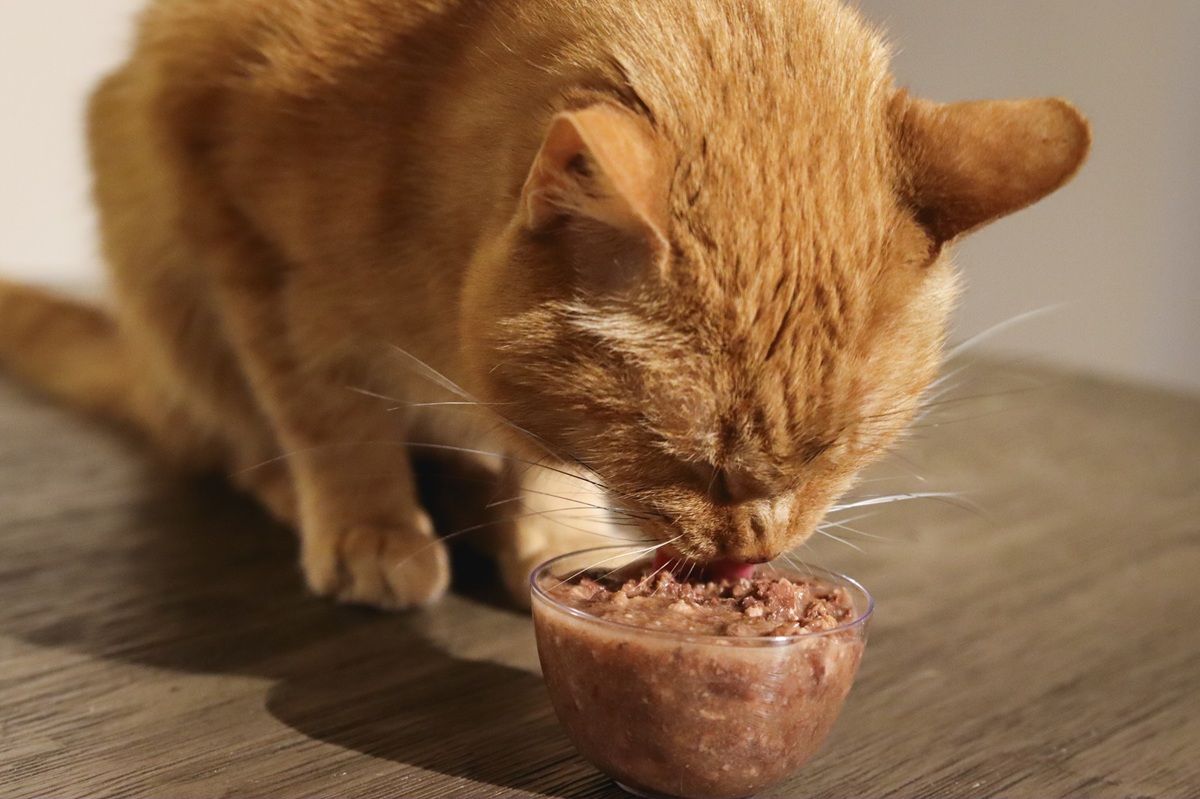
Kirsten McCarthy / Cats.com
The best cat food for urinary tract health has a high moisture content, balanced pH levels, and minerals to keep your cat’s urinary tract working smoothly.
Foods that meet these requirements are easier to find than you might expect. You’ll find them on grocery shelves and pet store aisles, with or without a prescription, and sold at almost every price point you can imagine.
“Maintaining your cat’s urinary tract health is essential for their overall well-being,” said Emma Passman, a commercial pet nutritionist based in the United Kingdom. “Opt for high-quality, animal-based proteins to promote optimal urinary pH levels. Always consult with your veterinarian to select the most appropriate diet tailored to your cat’s specific urinary health needs.”
We recommend Tiki Cat Puka Puka Luau Succulent Chicken in Chicken Consomme as the overall best cat food for urinary tract health. It provides carnivore-appropriate nutrition in the juicy, low-ash format that cats love and their urinary tracts need.
But this Tiki Cat recipe is far from the only product that supports urinary tract health. Whether you’re on a tight budget or feeding a cat with food intolerances, there’s a great option available for you.
At a Glance: Best Cat Foods for Urinary Tract Health to Buy in 2024




Want a quick look at the products reviewed in this article? In the comparison table below, we’ve highlighted some of the most important features of each product. You’ll find more detailed information about each product later in the article.
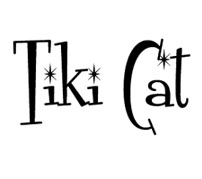
Tiki Cat Puka Puka Luau Succulent Chicken
- Species-appropriate ingredient list translates to appropriate pH levels
- Moisture-rich food helps to keep the urinary tract healthy
- Features highly-digestible chicken meat as the primary protein source

Smalls Ground Bird Fresh Cat Food
- Features chicken as a single source of protein
- Rich in hydrating moisture for urinary health
- Easily digestible and low in carbs
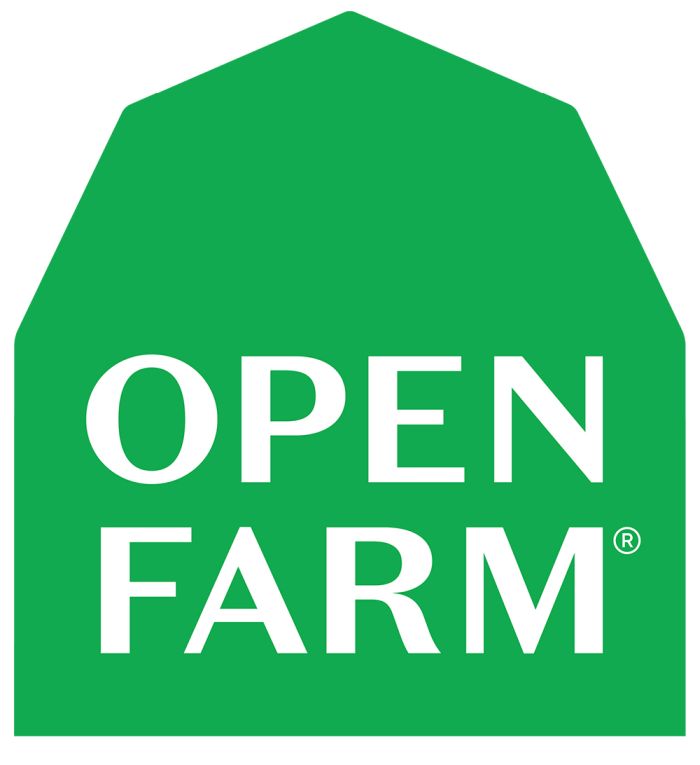
Open Farm Harvest Chicken Rustic Blend Wet Cat Food
- Made with a single source of high-quality animal protein
- Bone broth provides moisture and digestive benefits
- Contains cranberries for urinary tract support
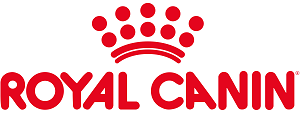
Royal Canin Veterinary Diet Adult Urinary SO Dry Cat Food
- Creates ideal magnesium levels
- Balances pH
- Has a high protein level

Hill's Prescription Diet c/d Multicare Urinary Care with Chicken Dry Cat Food
- High protein from a single source
- Multiple sources of healthy fats
- Promotes healthy urinary pH
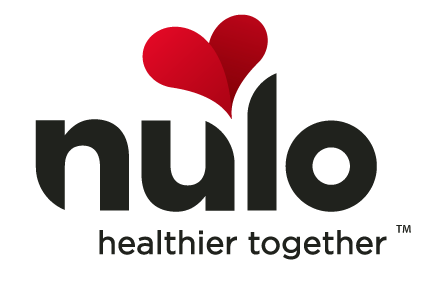
Nulo Freestyle Turkey & Chicken Recipe Grain-Free Canned Cat & Kitten Food
- High moisture content to support hydration
- Primarily made from animal ingredients
- Cranberries help support urinary tract health
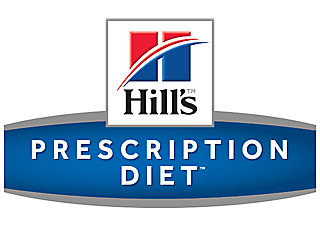
Hill’s Prescription Diet c/d Multicare Urinary Care with Chicken Canned Cat Food
- Clinically tested to reduce urinary symptoms
- Formulated for cats with urinary crystals
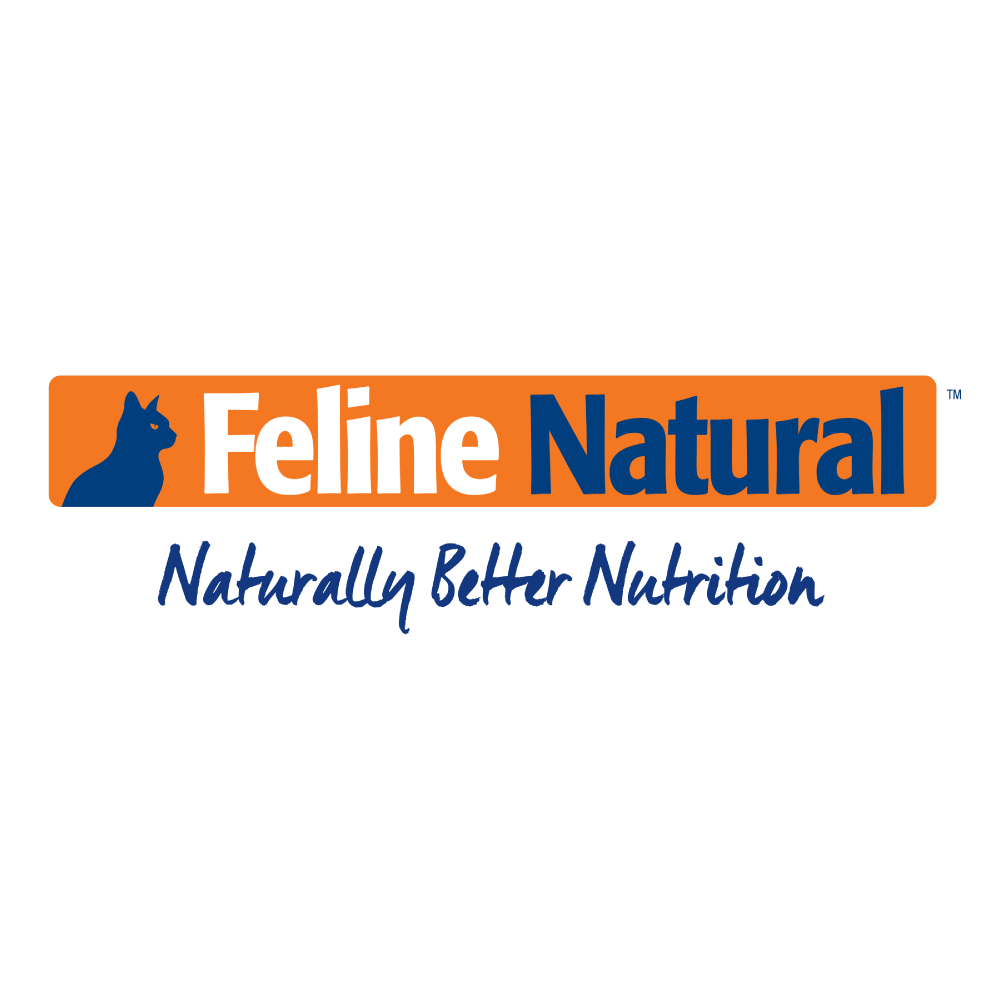
Feline Natural Chicken & Lamb Feast Freeze-Dried Cat Food
- Low in phosphorus compared to other freeze-dried foods
- Species-appropriate pH levels support urinary tract health
- Can be as moisture-rich as you want it to be
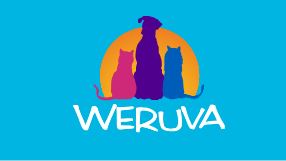
Weruva TruLuxe Grain-Free Steak Frites with Beef & Pumpkin in Gravy
- Rich in moisture to maintain good urinary tract health
- Relatively low in phosphorus compared to other non-prescription foods
- Contains pumpkin, which may help to prevent constipation

Weruva Amazon Livin' with Chicken & Chicken Liver in Gravy Grain-Free Canned Cat Food
- A moisture-rich diet that promises to support urinary tract health
- Relatively low-calorie for cats who need to lose weight
- Primarily made from nourishing animal-derived ingredients
What’s the Best Cat Food for Urinary Tract Health?
A food’s appropriateness for urinary tract health involves three factors—moisture, acidity, and mineral management. Let’s go into a little more detail.
The Best Cat Food for Urinary Tract Health Is Rich in Moisture
“Providing a diet rich in moisture helps to dilute urine and support kidney function,” Passman said. Moisture is the single most important dietary factor to defend against feline lower urinary tract disease (FLUTD). FLUTD describes the conditions that affect the lower urinary tract (bladder and urethra).
High-moisture food keeps water flowing through your cat’s system, flushing out mineral deposits and helping prevent infection. Several studies have demonstrated the importance of high-moisture food, showing that it can help reduce FLUTD recurrence and may prevent it altogether.
Why high-moisture food, though? If hydration is key, why not just give your cat a bowl of clean water?
Cats evolved as desert animals, adapted to life without water bowls. Instead of getting thirsty and drinking as dogs and people do, cats get most of their hydration from their prey, such as a mouse, which is 65% to 80% water. The best cat food for urinary tract health is equally juicy, effortlessly providing all the moisture your cat needs without relying on the water bowl.
The Best Cat Food for Urinary Tract Health Has the Right Acidity to Promote a Healthy Urinary PH
Diet influences the urinary pH and affects the way that crystals form in the urinary tract. An overly alkaline diet (pH greater than 7) increases the likelihood of urinary tract infection and struvite crystal formation. An overly acidic diet (pH less than 7) increases your cat’s chances of developing calcium oxalate crystals.
These crystals can accumulate in the bladder and irritate the bladder’s lining, making urination difficult and painful. Crystals can also lodge in the urethra and block urination, which is an emergency situation in male cats.
Your cat’s specific needs will depend on which types of urinary tract problems they’re most prone to. But in general, cats do best when eating a slightly acidic diet. Plant-based foods tend towards alkalinity while meat-rich, prey-inspired foods are in the optimal pH range for most cats.
Cats consuming a species-appropriate, minimally-processed diet rich in muscle meat, bones, and organs will have a urinary pH of about 6.0 to 6.5.
The Best Cat Food for Urinary Tract Health Has the Right Mineral Balance
“Choosing foods with balanced mineral content, particularly controlled levels of magnesium and phosphorus, can help prevent the formation of urinary crystals and stones,” Passman said.
The concentrations of phosphorus, magnesium, and calcium contribute to the likelihood that your cat will develop urinary tract crystals. Your veterinarian can advise you on how dietary changes can help prevent the specific type of urinary crystal that is affecting your cat. In general, though, preventing these crystals involves decreasing the amounts of minerals that contribute to crystal formation.
An easy way to identify foods low in these minerals is by avoiding those with meat, fish, and animal by-product meals. These meals are usually ground with bones and connective tissue intact, increasing the food’s mineral content.
The Best Cat Food for Urinary Tract Health on the Market: Our Top 10 Picks
Best Cat Foods for Urinary Tract Health: Comparison Table
| Product Name | Tiki Cat Puka Puka Luau Succulent Chicken | Smalls Ground Bird Fresh Cat Food | Open Farm Harvest Chicken Rustic Blend Wet Cat Food | Royal Canin Veterinary Diet Adult Urinary SO Dry Cat Food | Hill’s Prescription Diet c/d Multicare Urinary Care with Chicken Dry Cat Food | Nulo Freestyle Turkey & Chicken Recipe Grain-Free Canned Cat & Kitten Food | Hill’s Prescription Diet c/d Multicare Urinary Care with Chicken Canned Cat Food | Feline Natural Chicken & Lamb Feast Freeze-Dried Cat Food | Weruva TruLuxe Grain-Free Steak Frites with Beef & Pumpkin in Gravy |
Weruva Amazon Livin’ with Chicken & Chicken Liver in Gravy Grain-Free Canned Cat Food
|
| Primary Protein | Chicken | Chicken | Chicken | Chicken | Chicken | Turkey | Pork | Chicken | Beef | Chicken |
| Guaranteed Protein (%) | 16 | 13% | 7 | 32.5 | 30 | 11 | 8.5 | 48 | 10 | 10 |
| Ash (%) | 1 | 2.35 | 0.75 | 7.2 | 5.7 | 2.87 | 1.7 | N/A | 0.48 | 0.49 |
| Calcium (%) | 0.3 | 0.52 | 0.32 | 1.26 | 0.57 | 0.65 | N/A | 1.9 | N/A | N/A |
| Phosphorus (%) | 0.22 | 0.39 | 0.28 | 1.26 | 0.5 | 0.48 | 0.19 | 1.5 | 0.1 | 0.13 |
| Calories Per Ounce | 24 | 40 | 30 | 39 | 22 | 35 | 30 | 138 | 21 | 20 |
| Cost Per Day | $6.7 per day | $4.00 per day | $3.60 per day | $4.86 a day based on a 10-pound cat | $2.28 | $2.39 per day | $3.63 per day | $4.95 per day | $6.29 per day |
$4.07 per day
|
Don’t Rely on Diet Alone to Prevent Urinary Problems
If your cat starts straining in the litter box, has bloody urine, or is unable to urinate at all, he likely has some form of urinary tract disease.
Cystitis (inflammation of the bladder), urinary crystals, and urinary tract infections are all painful conditions that necessitate a trip to the veterinarian. A veterinarian can diagnose the type of urinary tract disease and determine which type of treatment is appropriate.
And if your cat has a complete blockage—he can’t urinate at all—take him to the veterinarian immediately. Complete blockages can be fatal if not treated quickly. Immediate veterinary care is required to clear the blockage and treat its underlying cause.
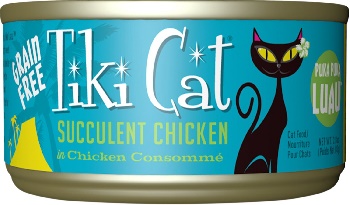
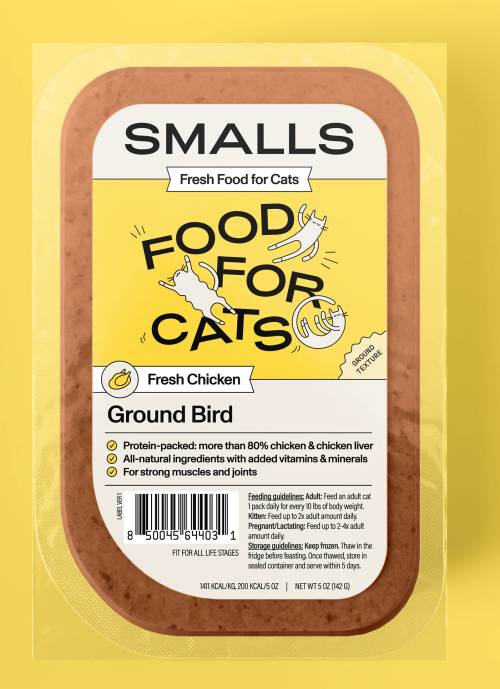



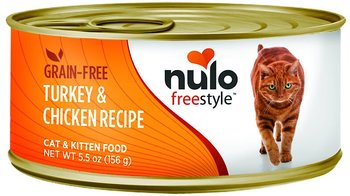

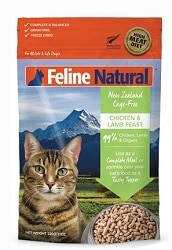
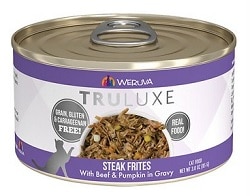














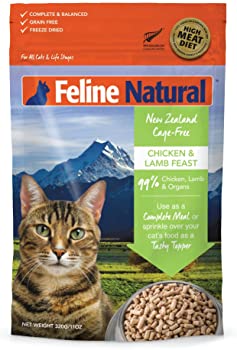
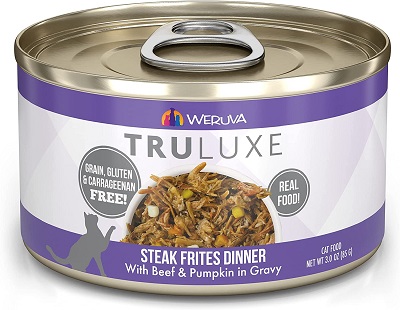



Could you please review Nutrience Care+ Urinary Health wet food, and their dry kibble Nutrience Care+ Urinary Health? My 18 yo tuxedo female loves them, and they seem to have good ingredients. We use a water fountain for her as well and she is so much healthier. Feeding a tiny bit of Restoralax in her morning wet food (as per our vet) to pull more water into her bowel and make poops more comfortable as well as Purica Pet Recovery for her joint health. Besides wet food 2x/day with a sprinkle of kibble on top, we add a few tablespoons of water to make a ‘gravy’ puddle around the pile of pate. She also gets what we call soup 2x/day (midday & 9 pm) – using a teaspoon of general wet pate like Whiskas, mashed up and mixed well with water to make a ‘chowder.’ Adds extra water to her diet and she laps it up. Maybe these suggestions will help other owners of older cats. Thanks!
Would any of Farmina’s urniary products be good? They have their OTC N&D Urinary products and their prescription Vet Life line.
Please remove this horrible Royal Canin food from the list!!!!
The ingredients are atrocious!!!!
For a good quality Urinary food: medicus veterinary diets
Royal Canin is garbage food! To remove from this list!
To be replaced by Farmina N&D Urinary.
Why did you add this Royal Canin food on the list!? This food is horrible! The first two ingredients in a cat’s food should never be brewers rice and wheat gluten.
We also find corn flour and corn gluten. NO,corn is not beneficial for a cat (obligate carnivore!) catinfo.org
So how come Purina pro plan isn’t on here. My vet wrote my girl a prescription for it and it’s helped her tremendously the non prescription one works as well.
Hi Cassandra,
Thank you for sharing, Pro planv Urinary Tract Health Formulas are a solid choice
Purina is garbage food . Read the ingredients . Cats are obligatoire carnivores. Look for Medicus Veterinary Diets.
My cat just had emergency surgery to remove struvite crystals that were blocking his urethra and causing him not to be able to urinate. After several thousand dollars later, we have now switched to a majority wet food diet. I am so against these prescription diets because of some of the ingredients and cost but my vet is really unhelpful when it comes to talking abt alternatives. I am currently feeding my cat Farmina N&D for urinary care as well as mixing water, probiotics and DL methionine. I would love to switch his diet to something that has better ingredients and costs less than 2.99+/can. Thanks for the recommendations. I’m wondering if you’ve heard of adding D Mannose and cornsilk to diets to support cat’s urinary health.
Hey there! Thanks for the comment. Sounds like you’re doing a great job. D-Mannose is one of the best-regarded supplements for urinary health issues, though it is really most suitable for cats prone to bacterial infection. Since your cat had struvite crystals, I’m not sure that D-Mannose is really appropriate for him. Corn silk also seems like it could be beneficial as a diuretic, potentially helping to flush the urethra and preventing mineral accumulation and crystals. Hope this helps!
Hi Mallory,
I have a 2 1/2 year male cat that requires urinary care food – but due to allergies it has to be chicken free and grain free. I’m not having any luck finding one. Any recommendations? Thank you.
Hi Shelley, thank you for the message! A lot of the foods listed here come in chicken-free and grain-free varieties. For instance, the Smalls recipe here is also available in turkey, as does Open Farm.
Typo in previous post:
WILD COAST RAW CHICKEN.
please review if possible.
Thanks, Julie
Thanks!
Hi Mallory, have you ever or will you review Wild Coast Rae food? I’m hoping to transition my 2-year-old male cat off of the prescription foods after a urinary analysis clearing him of all crystals. Thank you. julie
Hello Julie! Thank you for the request. We will consider it!
Hi Mallory, my female cat (1.5yo) had struvite stones 2 months ago. She was prescribed RC Urinary SO. She liked it (both the wet and dry though prefers the dry). After 3 weeks free from urinary issues (no blood in urine, good litter clump size, etc), I’m currently transitioning her wet food from RC Urinary SO to RC Urinary Care. It’s been two days and I only mixed around 10% of Urinary Care to 90% of Urinary SO. She’s VERY finicky when it comes to wet food. Long story short, she doesn’t like the Urinary Care wet food and would always leave it on her bowl (she manages to pick only the Urinary SO pieces). I’m wondering if Urinary SO is actually safe for long term feeding and thus I can just stick with it indefinitely. Because my vet said it’s not recommended to be fed more than 6 months. Also: I live in a country where none of the brands recommended here is available. Other than RC, for non-perscription Urinary Care food we only have Urina ProPlan and Happy Cat (only avail in dry variant).
Hello Ros, sorry it’s taken me so long to get back to you on this question! I have definitely seen cats eating the Urinary SO food for an extended period of time, and it is recommended for long-term feeding, but you’re supposed to get a checkup to confirm that it’s still a good idea every 6 months. Sometimes, it can over-acidify the cat and lead to different types of crystal formation, necessitating a different diet to combat that!
Thank you so much for all the information shared. How can I find out if my cat has urinary problems due to crystals? Lately Kappuccino doesn’t want to eat any of the prescription wet foods.
The only real way to find out is to have your vet run a urinalysis. Vets can identify crystals in the urine of a cat by analyzing a urine sample under a microscope. The sample is usually collected through a process called cystocentesis, which involves inserting a needle through the cat’s skin into the bladder to obtain a sterile urine sample. The urine is then analyzed for the presence of crystals, which can be seen under the microscope. In some cases, the urine may also be sent to a laboratory for further analysis to determine the type of crystals present. Until you get the diagnosis, I would focus on simply giving a high-quality, high-moisture diet and not worrying so much about addressing the specific type of urinary tract disease.
I recently changed my cats food to open farms kibble and it caused my 1 1/2 year old male cat to be blocked. He ended up having pu surgery and is doing much better. The vet agreed that it was the food. I met another lady who fed the same food and her cat also developed urinary problems and needed surgery. I highly don’t recommend open farms! Weruva & Tiki Cat are excellent choices though!
Thank you for all this great information. I have a question. Do you know of any of these Urinary Health foods conaining fish, Tuna or Mackarel. My cat loooooves fish chunks and most of the urinary have chicken or they come in a Pate form. Thank you !
Fish-based foods are often not recommended for cats with urinary issues due to their mineral content, but if you’ve ruled out crystals as the cause of urinary issues, you’re more than welcome to indulge your kitty’s love of fish. Tiki Cat has some nice fish-based recipes, and they’re all similar to the ones listed here.
Would love to know if you have reviewed or will be reviewing the Pure Cravings cutlets in gravy canned cat food being carried at Costco. Packaging claims “The only mercury tested fish for cats” and “only pure wild caught fish” box of 24 cans in tuna, sardines, and salmon. Sounds promising, would love to know how it compares to Tiki.
Thank you
We haven’t reviewed Pure Cravings yet, but we plan to!
What about the N&D urinary recipe??
Thank you so much for your thorough reporting. I have 2 cats and 2 – 8 mo old kittens. Our adult male is on Royal Canin urinary SO, very expensive, he hates the wet, loves the dry, so have been mixing tiki fish flavors with the prescription wet. He just licks around and only eats the tiki. Since reading your comments I’m giving him just the wet Luau chicken but couldn’t find the Puka Puka Luau chicken. Did they,tiki, have a name.change? Also, I want to transition the kittens from blue buffalo kitten dry to an adult food but since one kitten is male would like a recommendation for a dry that may ward off a future urinary issue. The kittens get the buffalo wet and tiki fish varieties too. BTW, does tiki check for mercury in their fish foods?
Hi Carole, the Puka Puka Luau recipe is definitely still available—I’ve seen it sold through Petco, Chewy, and other sites! You might want to consider shopping online if it’s not available in local stores. Regarding mercury testing, it doesn’t sound like they do testing, but they seem to follow certain procedures to minimize the mercury content of their fish ingredients. A Chewy representative says that “All Tiki Cat seafood is caught in the South Pacific to minimize mercury and pollutants. To further decrease mercury concerns, all their tuna is caught using with (sic) short lines to bring in smaller, younger fish. Their fishery is a member of the International Seafood Sustainability Foundation and they follow the Monterey Bay Aquarium Seafood Watch guidelines.”
Will any flavor of the tiki cat food be ok or just the one listed? My 11 month old cat had PH of 7 and UA said some crystals. Vet said take him off kitten food and revaluate later.
Any flavor, though the fish recipes are more likely to have higher mineral/ash content that may contribute to urinary tract crystal formation.
Hi Mallory.
I have a 7 year old male cat who had a severe urinary blockage when he was 2 (he almost died). Since his surgery, he has been on Urinary care foods (Royal Canin and Blue Buffalo). He has had increased thirst and passes a very large amount of urine. He has also gained a very large amount of weight (he is 26 pounds). His last vet visit showed great blood work, but he needs to lose weight. He is very picky.
I was feeding him Blue Buffalo Urinary Care, and Tiki Cat wet food. The vet suggested Royal Canin Satiety Diet. Unfortunately the Royal Canin is causing his bowel movements to be very large, and it seems as though it’s painful. I also really detest feeding my fur family products with low quality ingredients.
Do you have any suggestions on what he should eat for weight loss and Urinary care combined? Any help would be greatly appreciated.
Thank you!
Hi Lothian, any of the foods on this list will do a good job of helping your cat to lose weight. A fiber-rich diet isn’t going to satiate him like a moisture-rich one, and it won’t be as good for his urinary tract, either.
Same problem with our cat after PU surgery. No more Urinary blockages, but gaining a ton of weight on Blue Buffalo prescription Wt/Ur wet food. 24 lbs is too heavy.
Hi Mallory, I noticed that Allaboutcats have not reviewed Evanger’s cat food, I spent a lot of time doing research for the best urinary tract cat food for my cat that has struvite crystals and I am sure Evanger’s EVx Restricted Diet is the best, way better than any so-called prescription diets that have lots of fillers and unhealthy ingredients, may I kindly ask if you can please do a review on Evanger’s pet food? They are indeed high quality, I just wish I could them in Canada but unfortunately they are only available in the US for now.
Hello there! I haven’t reviewed Evanger’s here on All About Cats yet, though I did write a review for another site a few years ago. While some of their formulations look promising nutritionally, Evanger’s flies a lot of red flags as a company. They have a history of deception and criminal activity, and during an FDA investigation in 2017, their facilities were found to have multiple health and safety issues that could affect our cats. Here’s another article going into disturbing detail on the Evanger’s scandal. For all of these reasons, I’m leery of the brand as a whole. However, I agree that these non-“prescription” diets for cats with health issues look promising, and they could be a good option for cats with existing conditions in need of dietary management. We’ll consider going in-depth on this brand in a review on the All About Cats site as well—it’s quite an interesting one!
Hi – I have a 4 1/2 yr old male rag doll cat who has a high PH that has been monitored for some time now by several vets. I have him on a raw rabbit diet and adding several different supplements – Dr Mercolas bladder support, ION for pets and animal essentials hairball relief which is liquid marshmallow root. I also add 3-4 tsp of “Cat Water” to each meal 3X per day. Last urine test was all normal except for a high PH of 8 and 1+ protein. I am wondering now if it is the good he is eating. He has had minimal crystals in past urine tests. I am wondering if it is the raw food I am feeding him? Unable to get info from brand about phosphorous, calcium and magnesium levels. Vet is currently doing a Vit check that includes Vit D, Vit B and magnesium. The raw brand is called RAWR and they are out of San Fran, CA. I am trying Small Batch Frozen rabbit right now and am wondering if this is a good choice? My cat turns up his nose at other proteins. I have had limited success with turkey. Would appreciate your feedback! Thank You Julie
Hello Julie, thank you for stopping by! Unfortunately, I can’t comment on the effect of your cat’s diet on his urinary pH levels, and it’s concerning that you’re not able to get that information from the brand. Have you contacted RAWR directly? A good manufacturer should be able to provide details on these minerals and provide insights into the pH effect of the food as well. Smallbatch makes this information readily available right on the website, suggesting that they are a more reputable company.
Hi there, I was wondering if your have any raw food recommendations for cats who require urinary health. I have an 8yr old male who previously had blockages due to struvite crystals and the last episode was told it was stress-related FLUTD?? I’m starting to think that going back to a more natural diet would be more beneficial. But his vet and the ER vets just shrug their shoulders when I ask them for advice.
Hi Omaira, thanks for the comment. Based on this description, I would think that any good raw diet should be acceptable. Raw diets tend to be more acidic than foods with a lot of plant content, which might help if it does turn out that he’s dealing with struvite crystals, and then raw meat is of course also high in moisture, which is another component of good food for urinary tract health. Between these two causes you’ve been given, I don’t see anything that would make raw food an inadequate or inappropriate choice.
Thank you so much!! I’m going to give it a try.
Hi there……
I have had my 14 year old cat on Hill’s K/D diet since she was young, simply as as a preventative measure knowing that kidneys are the first to go and often prevent a long feline life. I would like to try other options for her now, keeping her renal function as primary concern. I see a lot of information in your blog about urinary issues, but I dont see renal health mentioned anywhere. Of course they are related, yet I have not seen you mention kidney function, per se. Can you comment on this, and recommend good alternative food for my cat?
Hi Robin, you’ll find a number of good recommendations in our article on the best food for cats with kidney disease. Hope this helps!
Is the Wholehearted Chicken in Gravy (canned) the only flavor that you recommend using? There are a few other flavors that my cans would also like. Thanks
Hey Kristina. No, it’s not! The other flaked recipes are extremely similar and will give your cat comparable nutrition. Go for it!
Thanks! I did get the chicken-and he won’t touch it. And you can’t say he will eat it when hungry–didn’t touch it for 2 days. I give him some of the previous brand and he immediately ate it–all of it! He was hungry!! I will have to try another flavor.
My cat develops calcium oxalate stones. Is Tiki Cat velvet mousse a good food to feed him? He is a very picky eater and loves this food.
It should be fine! Some cats prone to calcium oxalate stones do best on a veterinary diet long-term, but a high-moisture, meat-based diet like Tiki Cat’s Velvet Mousse can also be a good option. Your vet may want your cat to be on a diet that contains citrate to bind urinary calcium while keeping calcium and magnesium at moderate levels, but even so, I see no reason why the mousse could not join the rotation as a treat. I’d recommend talking with your vet about this.
Hill’s Science Diet prescription cd foods first ingredient is pork By-Products. Is that a bad ingredient for a cat that develops calcium oxalate stones? What is the best prescription cd food?
My 4 yr old male cat just came off of FIC, and now has a not as bad case. I checked the ingredients in Hills Urinary c/d canned. If this were regular food, I wouldn’t feed it to him (too many non-species-appropriate ingredients). He would not touch Royal Canin’s version (milk??).
Why are these foods appropriate for removal of struvite crystals, when they contain crappy ingredients? I asked both the ER vet and his regular vet. Shoulder shrug. Seems like a racket to me.
Lee, I’m in the same situation. I don’t feel good about feeding my cat these prescription foods after researching the ingredients. I’m now going to a more holistic style veterinarian and we are going to gradually get my 2-year-old male cat off of the prescription foods once the crystals are completely gone. It’s very difficult because I was feeding him a really good quality raw chicken food WILD COAST and OPEN FARM wet food prior to him developing crystals. I thought I was doing everything right. I’m adding a tablespoon of water to every feeding just to increase the water content so this never happens again. I wish Mallory would have responded to your post.
Hi Julie, thanks for the comment. Assuming you’ve confirmed that your cat’s issues are, indeed, caused by crystals, I would consider which type of crystals they are. Not every cat develops crystals or urinary issues due to the wrong food—some are prone to them genetically. Others develop inflammation due to stress. You need to know what’s going on in your cat’s body to find the appropriate dietary solution.
More acidic diets tend to be good for cats prone to forming struvite crystals, but they may not be the best match for those prone to forming calcium oxalate crystals. Prescription diets do a good job of addressing both, but I agree that they don’t have the nutritional qualities we’d prefer. I’d recommend talking with your new vet about what type of crystals you’re dealing with. This will allow you to figure out which type of diet will address them appropriately.
As for Lee’s comment, I apologize for missing it! I’m not sure what happened there.
Best,
Mallory
So my cat has a history with UTIs and constipation.
She is 12 years old, and I am currently feeding her Hills Science Diet Urinary and Hairball control dry food, 1/2 cup per day, and Weruva canned wet, about 1/3 can per day (1.8 oz)
Her kidney function is on the high side of normal, so I’m looking for foods that will help with her UTIs, constipation, and help with her kidney functions.
Will the foods on this list help, or is there something different you would recommend.
Hi Greg, sorry about the late reply! This is a great question. If she’s comfortable with it, there are a few other options from Weruva’s Truluxe line that may be better than the formula you’re giving right now—again, I’m not sure which recipe you’re feeding, so this may be off base—but the first one that comes to mind is their Steak Frites recipe, ranked #4 in our article on the best food for senior cats. It’s lower in phosphorus than most other foods, and it contains some pumpkin that may also help with that constipation. Generally, I think this diet should be adequate for maintaining urinary tract health, but you may want to consult a vet for additional guidance.
Thanks for sharing the link to Tanya’s Comprehensive Guide to Feline Chronic Kidney Disease: https://www.felinecrf.org/ That site was very helpful with my elderly kitty with kidney disease – especially the nutritional analysis of foods (and specific to each different flavor, because there are major differences). Using that I was able to lower and maintain her potassium/phosphorus and other levels without having to buy prescription food – which is always a challenge when you have two cats eating different food. Highly recommend checking out that site!
It’s a great site. Thanks for sharing your experience as well!
We have been using Hills Science Urinary Tract and Hairball Control dry food. The cats seem to like it but is this healthy for them long term with UTI problems. If the food doesn’t specifically say Urinary Tract health on the food can we not use it? Thank you!
Hi Chance, thank you for commenting. As mentioned in this article, feeding a cat with urinary tract issues is a complicated matter. A therapeutic diet is not a medication—there is no specific dosage at which the food becomes effective, and there’s no single food that is appropriate for every cat who has experienced a urinary blockage or similar issue. With that in mind, I think it’s okay to feed a combination of urinary tract-oriented and non-urinary tract-oriented food, but that is a step below a diet solely consisting of the urinary food, and that slightly-superior option is not as good as feeding a high-moisture, species-appropriate diet. So you can see that there is a gradient of appropriateness in these choices, and it’s okay to move slightly up and down on that gradient. However, my preference would be a high-moisture diet that directly addresses the underlying cause of your cat’s urinary issues, whether that is struvite crystals or something else. Hope this helps. – Mallory
Avoid dry food for a cat! Catinfo.org
I have 4 indoor only cats with only one diagnosed with UT crystals. He was completely blocked 8 months ago and was rushed to ER Vet. He’s doing well however the expense of feeding Prescription Hill C/d wet and dry food to 4 cats is painful to my budget. Do you have any suggestions on how I can reduce the cost? It’s very difficult feeding a special diet to one cat. Since starting the Hills C/d, all the kids have put on a few pounds. Not good. Plus hairballs are more frequent.
Hi Joan, I think you need to first decide if you want to keep that cat on the c/d diet. As you can see in this article, there are a lot of non-prescription options available for cats with urinary tract issues, so unless your vet determines that this cat has a particular type of urinary issues that absolutely necessitate the use of c/d, you should be able to safely shift to a cheaper alternative. However, if you do want to keep your cat on the c/d, I would suggest using a microchip feeder to keep your other cats out of the prescription diet. It costs close to $200 and is a pretty significant upfront investment, but it will allow you to reduce your feeding expenses. I hope this helps a bit!
Hi Mallory,
My cat has urinary issues. I have been keeping him on wet food the best I can. Aren”t cats with these issues not eat grains?
Hills and the other urinary foods have grain in them. How can those foods help a cat.
Hi Patricia, grains are not necessarily a bad thing for cats in general, nor are they a particular problem for cats with urinary tract problems. As mentioned in this article, meat-based foods are sometimes recommended due to their (generally) lower pH, but the prescription foods here are formulated to have a pH appropriate for specific urinary tract problems. For this reason, they do appear to be able to address certain urinary tract conditions. Hope this helps!
my cat has flutd and infection and christals she is on antibiotics and stress c/d dry food did not like any of the persription can she was on the wellness turky and salmon can food and pure vita nutrisource dry when she better i would like to try a differnt can food any suggestions
Hi Bonnie, thanks for the comment! Any of the foods mentioned here could work for your kitty! I would use a cautious trial and error process to find one that works well for her.
My kitty has just spent a few days at the vet’s for a urinary blockage. He is a very finicky eater. I have read through your articles about food recommendations. I got him some science diet c/d and he won’t eat it. this may seem like a silly question but is there a problem with mixing that with the Weruva pouch of Pumpkin Jack Splash or the Weruva Paw Lickin chicken with the Science Diet??
Hi Mary, that’s a good question! Prescription diets aren’t an exact science, and, unlike a drug, you’ll seldom see claims that a urinary food only works if it’s given in a certain quantity for a cat of a certain weight. I’d encourage you to ask your veterinarian before making a final decision, but I think that, given that your cat won’t eat the Science Diet c/d anyway, it wouldn’t hurt to mix it with another food that he finds more palatable. You’ll get some of the benefits of the prescription food but in a format that your cat enjoys. Hope this helps!
Do you have a non-prescription urinary tract dry food recommendation? Royal Canin SO is not available currently and my cat does not like the Hills SO. Thank you!
Hi Leslie, have you tried Royal Canin non-prescription urinary cat food? They have a line of foods that, while not prescription products, are formulated to address certain health issues, including urinary tract health. This may be a good option to consider until the Royal Canin SO is back in stock.
do you have a recommendation for a dry food? I know wet food is probably best for my cat, especially with the way he doesn’t drink water, but the monster still eats like he’s a starving kitten and he always eats so fast that he pukes. I have to give him dry food in a slow feeder bowl to prevent this, and it doesn’t work the same way with wet food. Do you have a list of top dry foods for uti health for cats? Right now he’s doing well with Purina one, but I know they aren’t the best brand out there.
Hi Sierra, I would recommend any of the prescription dry foods formulated for urinary tract health. Royal Canin and Hill’s Prescription Diet both have options that receive very high ratings and can help to alleviate urinary tract issues.
Not sure but I did some research on Royal Cannin there was a vet that researched RC n stated that RC’s main protein included dead decaying or sick animals in their cat food …so just check independent research as its not the first time i heard this over the years. I’m not one to put a negative statement against a manufacture but as with most people I am tired of these manufacturers producing foods that are not safe or healthy for our pets to eat…Until we start demanding better for pets they will be the ones that continue to pay the price. Cats are carnivores there’s no reason why their diet should have vegetables, by products, or substitute chemicals due to lack in quality proteins. I sometimes wonder why the statement “cats are finicky eaters” is so globally accepted without question….are they truly finicky or are they just not liking what they’re being fed — by products, chemical derived ingredients, vegetables… last time i checked cats naturally like mice n rodents…….I’d be a little finicky to.
This is the kind or accusation that is common on social media- ie no factual information that gives references as to the Vet name or research reference information. This does not qualify as quality information and possibly qualifies as lawsuit information for RC to use against those who provide it or publish it. I have no tie in to RC or Hills, just put off by hear say information presented as fact.
You should have the Country of Origin on each one! Full disclosure…
Hi Colleen, thank you for the tip!
Yes. My senior girls have different issues. My eldest has FHS or Feline Hyperestesia Syndrome and develops a nasty lining in her bladder that at times, sheds. That causes red blood to leak out! Hill’s c/d stress dry has helped her. I’d like to try other things. She drinks well but prefers dry foods & treats. Any ideas?
Hi Cat Landess, it sounds like stress management is going to be critical for your eldest girl. What are you currently doing to help control her stress? Additional private spaces, elevated territory, regular playtime, and a consistent routine can all help.
i found this article very helpful! Thanks so much!
Pet Wellbeing has a drop to help kidneys. It has helped my 20 year old for sure. Look at Now cat food low in magnesium and phosporus.
Hi Jonna,
Thanks for sharing your recommendations—it’s great that you’ve found something that helps.
For those who need more advice on what to feed their cat with chronic kidney disease, please check out Tanya’s Comprehensive Guide to Feline Chronic Kidney Disease: https://www.felinecrf.org/
It’s an invaluable resource that covers almost everything you need to know about caring for a cat with CKD. If you don’t have a few hours to read it all today, the site’s worth bookmarking for future reading.
If you just need a few recommendations, you might prefer our article on the best cat food for kidney disease: https://cats.com/best-cat-food-for-kidney-disease
Best,
Mallory
I would like to know about food for my cat she is 17 with kidney renal failure or renal kidney failure I always forget which order goes on
Ck out felinecrf.org. great reference with solid scientific studies to back info plus 29 years of personal experience.
Look for medicus veterinary diets. Excellent quality.